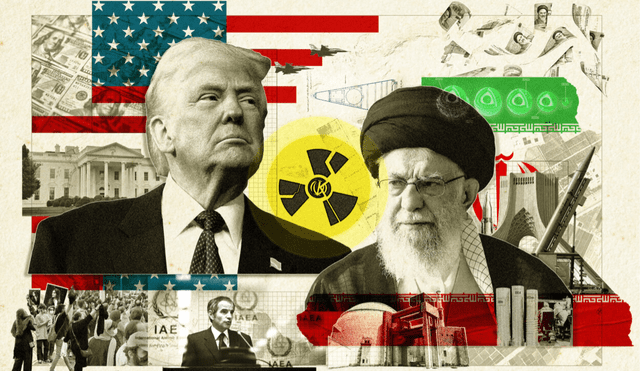Nuclear deal: US and Iran report progress in second round of talks in Rome
Delegations from the United States and Iran concluded a second round of nuclear negotiations in Rome, with positive statements from Tehran. The meetings were mediated by Oman and without direct contact between the parties.

A new round of negotiations between representatives of the United States and Iran on Iran's nuclear program concluded this Saturday in Rome. The meeting, which took place one week after the first meeting in Muscat, Oman, was organized under the same conditions: without direct communication between the delegations, mediated by Omani Foreign Minister Badr bin Hamad Al Busaidi.
The US team was led by Special Envoy Steve Witkoff, while Foreign Minister Abbas Araghchi participated on the Iranian side. After about four hours of indirect dialogue, Araghchi described the meeting as "positive" and noted that agreements had been reached on some common principles and objectives. A third round is planned for the coming days, amid persistent regional tensions.
Geopolitical Context and International Pressure on Iran
The negotiations are taking place amid growing international pressure. The United States is seeking Iran's halt to high-level uranium enrichment, an activity it considers weapons-oriented. Iran, for its part, has reiterated its right to enrich, although it has shown a willingness to negotiate certain concessions in exchange for relief from economic sanctions.
US President Donald Trump recently indicated that he has no immediate intention of launching military strikes against Iranian nuclear facilities, but reiterated that the option remains on the table. At the same time, envoy Witkoff met in Paris with Israeli officials and European allies to align positions ahead of the meeting with Iran, in a strategy aimed at strengthening international coordination in the face of Tehran's nuclear advances.
Parallel Diplomatic Moves and Signs of Regional Opening
Prior to his arrival in Rome, Minister Araghchi visited Moscow, where he met with Russian President Vladimir Putin and Foreign Minister Sergey Lavrov. According to his statements, Russia could play a supporting role if a new agreement is reached. Meanwhile, the head of the International Atomic Energy Agency (IAEA), Rafael Grossi, warned from Iran that the talks are "at a very crucial stage" due to the advancement of Iran's nuclear program.
In a significant diplomatic gesture, Saudi Arabian Defense Minister Khalid bin Salman Al Saud also visited Tehran this week, marking one of the highest-level meetings between the two countries in decades. Saudi sources indicated that the Kingdom seeks to promote regional de-escalation and participate in possible peace efforts. However, they acknowledge uncertainty about the Trump administration's strategy in the negotiations with Iran, which they describe as unpredictable and possibly short-lived.













